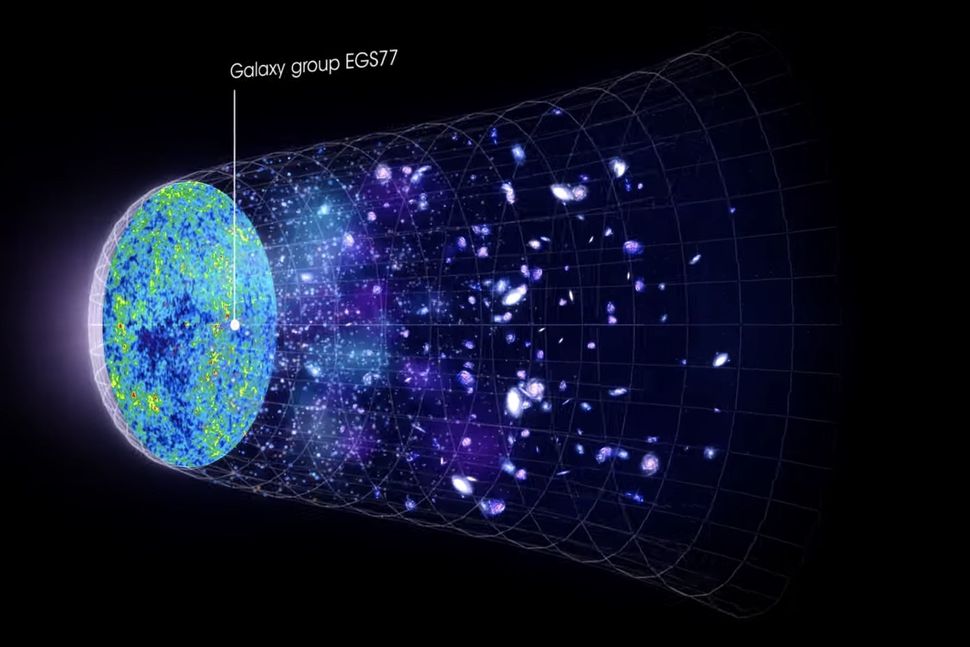Galaxy Group 13 Billion Light-Years Away Could Be Ending the Cosmic 'Dark Ages' Before Our Eyes
By Brandon Specktor - Senior Writer 8 hours ago
These three galaxies are some of the oldest ever seen, and they're hard at work reshaping the universe.

This illustrated map of the universe shows galaxy group EGS77 clearing away the cosmic fog of the early universe, some 13 billion years ago.
(Image: © NASA’s Goddard Space Flight Center)
For hundreds of millions of years after the Big Bang, the entire universe was a thick soup of hydrogen atoms swimming in total blackness. So dense was this cosmic goulash that the first light from the first stars in existence couldn't penetrate it — the hydrogen fog simply absorbed and scattered the starlight in circles, trapping the universe in a cosmic dark age as ever more stars, galaxies and black holes slowly smoldered to life.
That all changed after about 500 million years, when a grand cosmic makeover called the epoch of reionization began. As ancient galaxies grew ever larger and radiated more powerful energy, they began to burn away the cosmic fog that surrounded them by splitting (or ionizing) hydrogen atoms into a plasma of free protons and electrons. Suddenly, light could travel across the cosmos — first through "bubbles" of plasma surrounding large galaxies, then farther and farther as multiple bubbles began to expand and overlap.
Now, for the first time, astronomers believe they've detected three of those fog-clearing bubbles hard at work reshaping the universe in a group of galaxies 13 billion light-years away.
In a study that was presented this week at the American Astronomical Society conference in Honolulu and submitted for publication in a forthcoming issue of The Astrophysical Journal, an international team of astronomers identified a trio of faraway galaxies that seem to be radiating some of the earliest light ever observed. The galaxy group, named EGS77, dates to approximately 680 million years after the Big Bang (roughly 5% of the universe's current age of 13.8 billion years) and appears to be surrounded by three overlapping bubbles of plasma — meaning these pioneering galaxies may have been caught in the act of reionizing their corner of the universe and bringing the cosmic dark ages to an end.
More:
https://www.livescience.com/galaxies-clear-cosmic-fog-epoch-of-reinoization.html
